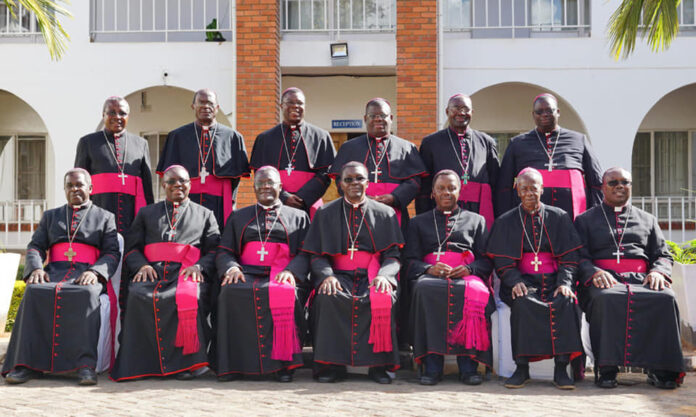REGIONAL, TRIBAL POLITICS WORRY CATHOLIC BISHOPS
By New Dawn Reporter
CATHOLIC Bishops in Zambia are worried about the increased tribal politics in the country.
In its Pastoral letter, the Zambia Conference of Catholic Bishops (ZCCB) say the political situation in Zambia is still characterized by the continued politicking and trivializing of important national matters by political leaders at all levels.
They note with sadness that regional and tribal sentiments still enjoy a centre stage in the country’s political circles.
“There is need for a genuine, inclusive and democratic national reconciliation in the country where political leaders ought to realize and appreciate the fact that their priority should be that of serving Zambians.
The government should lead and be seen to lead the way in eliminating the “tribal” talk and sentiments in the country,” the Bishops stated.
On unemployment, the bishops said the larger number of Zambians is still unemployed.
“We note the fact that government has employed 30,496 teachers and 1-1,276 health workers. However, unemployment in Zambia continues to be a matter of concern and the government needs to urgently improvise practical strategies on how to deal with these high escalating levels.
The truth of the matter is that government cannot manage to employ everyone; it is not just feasible and sustainable. Hence the importance to venture into serious support of SMEs, SmallScale Farmers and opening of manufacturing industries in order to create more jobs. Further, we call upon the government to create an enabling environment for the already existing SMEs to thrive especially by paying them for services and goods supplied.”
The bishops also noted that the health sector is failing the people of Zambia as it is running without medicines.
“Health of the citizenry is cardinal to the productivity of a nation. lt has been observed that health facilities in Zambia are lacking medicines to treat the population in many health institutions. The claim by the Ministry of Health that enough medicines have been dispatched to all health facilities cannot be substantiated as the information concerning the availability of medicines in both urban and rural health facilities does not correspond to the reality on the ground. ln most cases, patients are given prescriptions to go and buy medicines from private pharmacies where they are very expensive and out of reach for the poor Zambians. We appreciate the establishment of NHIMA. However, its implementation leaves much to be desired and government is encouraged to look at its operation with the urgency it deserves. The revision of the procurement policy is also necessary in order to facilitate the acquisition of medicines and other hospital equipment.”
